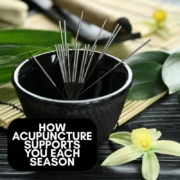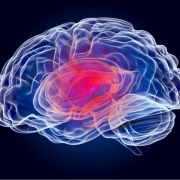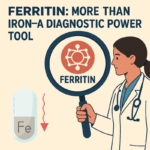Acupuncture for Headaches: A Holistic Approach to Lasting Relief
Nearly everyone experiences a headache at some point, but for those who suffer from frequent or chronic headaches, the impact can be truly debilitating. Whether it’s the dull, persistent ache of a tension headache, the intense throbbing of a migraine, or pain associated with an underlying health condition, identifying the root cause is essential for lasting relief.
Headaches can stem from a wide range of factors, including stress, hormonal imbalances, musculoskeletal tension, neurological sensitivities, or illness. That’s why an accurate and comprehensive diagnosis is so important. At the Kaplan Center, we reject the notion that you simply have to “live with it.” Our team is committed to helping patients identify the underlying causes of their headaches and develop personalized, effective treatment plans.
One highly effective and increasingly popular treatment we offer is acupuncture. This ancient therapy, rooted in Traditional Chinese Medicine and practiced for over 2,000 years, is now backed by modern scientific research for its effectiveness in managing and preventing various types of headaches.
The Science Behind Acupuncture
Recent clinical studies, including those published in prestigious medical journals such as The Cochrane Database of Systematic Reviews and JAMA Internal Medicine, show that acupuncture can significantly reduce the frequency, duration, and intensity of migraines and tension-type headaches. These improvements are often sustained over time and can be more effective than medication alone, without the side effects commonly associated with pharmaceuticals.
Acupuncture is thought to work by stimulating specific points on the body (called acupoints) to regulate the central nervous system, promote the release of endorphins and serotonin, reduce inflammation, improve blood flow, and balance the body’s stress response. For headache sufferers, this means more than temporary relief—it can lead to fewer attacks, better sleep, and improved overall well-being.
In one major study, those who received true acupuncture had significantly better outcomes than those receiving standard care or sham (placebo) acupuncture. These findings have led organizations such as the World Health Organization and the American Migraine Foundation to recognize acupuncture as a viable, evidence-based treatment option.
How We Can Help
Our acupuncture treatments are delivered by highly trained practitioners in a calming, patient-centered environment. Most patients find the sessions relaxing and even rejuvenating. Over time, many report dramatic improvements not only in their headache patterns but also in their energy levels, mood, sleep, and stress resilience.
If you or someone you love is living with chronic headaches, know that lasting relief is possible. Call the Kaplan Center today—703-532-4892—to schedule your appointment and take the first step toward a pain-free, empowered future.
We are here for you, and we want to help.
Our goal is to return you to optimal health as soon as possible. To schedule an appointment please call: 703-532-4892 x2
References
Jena, S., Witt, C. M., Brinkhaus, B., Wegscheider, K., & Willich, S. N. (2008). Acupuncture in patients with headache. Cephalalgia, 28(9), 969–979.
Linde, K., Allais, G., Brinkhaus, B., Manheimer, E., Vickers, A., & White, A. R. (2016). Acupuncture for the prevention of tension-type headache. Cochrane Database of Systematic Reviews, (4), CD007587.
Vickers, A. J., Vertosick, E. A., Lewith, G., MacPherson, H., Foster, N. E., Sherman, K. J., … & Linde, K. (2018). Acupuncture for chronic pain: Update of an individual patient data meta-analysis. The Journal of Pain, 19(5), 455–474.
World Health Organization. (2002). Acupuncture: Review and analysis of reports on controlled clinical trials.
Zhao, L., Chen, J., Li, Y., Sun, X., Chang, X., Zheng, H., … & Liang, F. (2017). The long-term effect of acupuncture for migraine prophylaxis: A randomized clinical trial. JAMA Internal Medicine, 177(4), 508–515.









Leave a Reply
Want to join the discussion?Feel free to contribute!